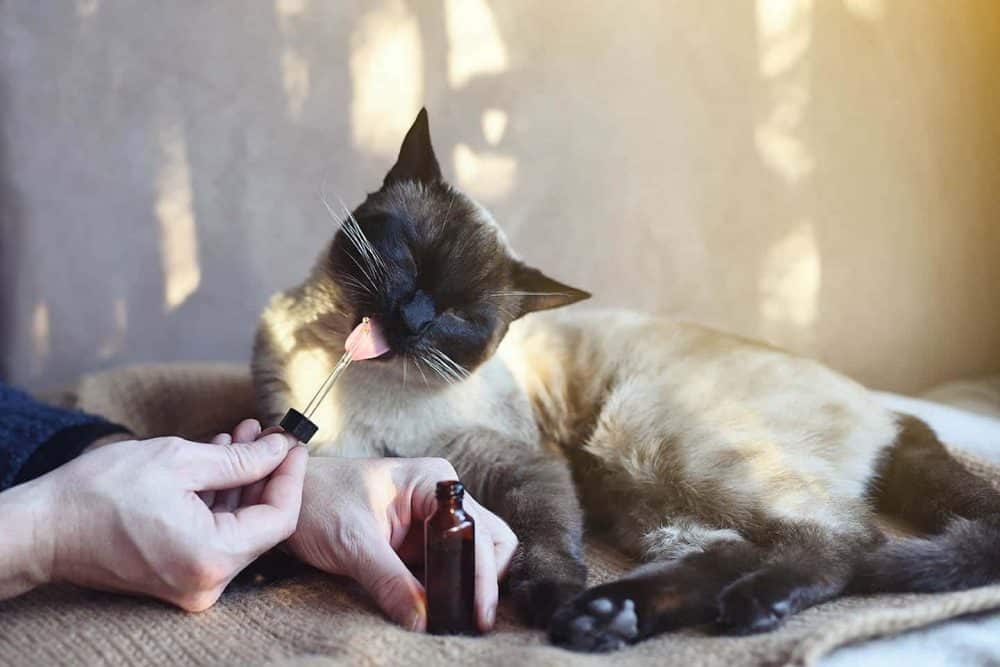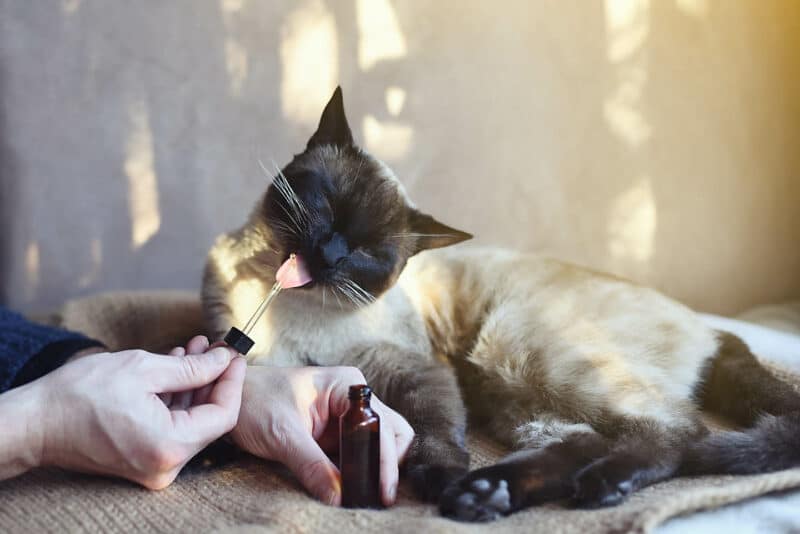Click to Skip Ahead
Many cat owners are turning to holistic approaches and natural supplements like CBD oils to treat their felines. As these alternative treatments keep undergoing research, it isn’t much of a surprise that more pet owners are getting invested in the oils.
Although substantial research studies on these natural oils are still ongoing, the findings and the health benefits of CBD oils on humans1 look incredibly promising.
However, there haven’t been official significant scientific findings on the oil’s impacts on pets, even though research on humans has proven effective. So, is CBD oil safe for cats?

What Is CBD Oil?
The cannabis plant contains over a hundred active compounds that humans have been using to treat various ailments for a long time. Cannabidiol, or simply CBD, is one of the main compounds extracted from the plant to be used for medicinal purposes.
After extraction, feline owners blend the CBD compound in oils like coconut, olive, avocado, hempseed, and palm oil. These oils act as carriers, just like essential oils, where owners give them to cats orally.
The primary purpose of the extraction of this compound from the cannabis plant is to create a high concentration of CBD, a substance with medicinal and therapeutic properties. Unlike the major active compound in cannabis—tetrahydrocannabinol (THC)—CBD does not have a euphoric or psychoactive effect that may leave its users “high.”
Since CBD is not mind-altering, cat enthusiasts have been using it to improve their pets’ quality of life and treat feline issues.
- Aches and pains
- Stress and anxiety
- Seizures and epilepsy disorders
- Osteoarthritis
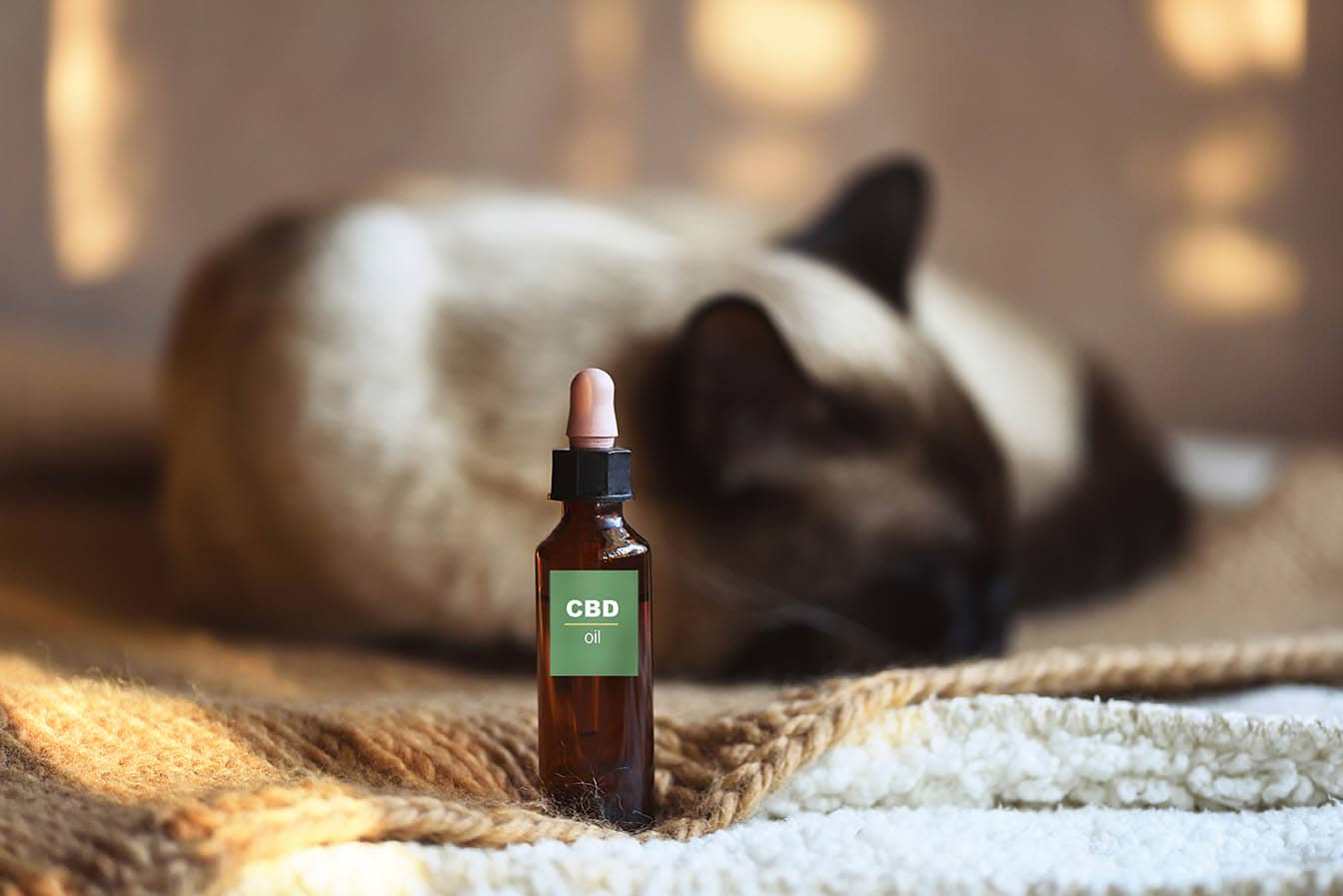
How Do CBD Oils Work in Cats?
The FDA has not yet approved the use of CBD or any other hemp-containing products in animals to treat any ailment. If you plan to administer CBD to your pet, you should consult with your veterinarian before doing so.
Animals such as cats and dogs have an endocannabinoid system that helps keep their bodies healthy. This system works as the body’s control system to facilitate healing.
Since it is innate, kitties produce endocannabinoid substances known as endogenous cannabinoids. After release, these substances travel in the bloodstream and help the cat’s body system maintain an internal balance known as homeostasis. This balance dictates to the body how it should respond to external events.
Therefore, when the CBD enters the body, it interacts with the endocannabinoid system to modify how it works (either by enhancing or inhibiting its function). For this reason, people use CBD oil as a gentle supplement for their felines.
However, as much as some cat parents attest to major success in managing their feline’s various health concerns using these oils, you should understand that cats and humans don’t process supplements the same way. For this reason, it would be best to contact your veterinarian before giving any to your kitty.
Potential Side Effects of CBD Oils for Cats
Although no research has confirmed the substance’s safety and effectiveness in cats, some research on doses has found that CBD oils are generally safe for cats. However, cat owners need to stay alert and consider potential side effects after administering CBD oil to their cats.
It would be best to visit the vet or ensure that you adhere to the correct dosage to combat the effects. Check out some of the adverse effects of CBD oils on your kitty.
1. Drowsiness
Although cat parents use CBD oils to treat stress and anxiety in cats, the calming effect afterward can turn to drowsiness, especially with high doses.
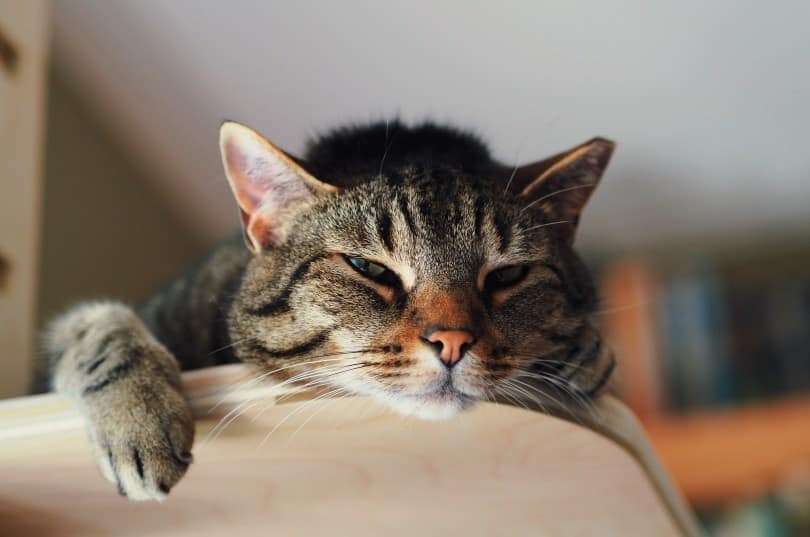
2. Diarrhea
Gastrointestinal upset is the most common adverse reaction of CBD oils for cats, especially if it manifests as diarrhea. However, cat owners can find it hard to know whether the bowel issue’s real cause is the oil or the feline’s eating habits. Therefore, it’s important to have your veterinarian assess your cat’s diarrhea issues.
3. Vomiting
Another common side effect of giving CBD oil to your kitty is vomiting. The reason is that the CBD oil may alter the gut’s normal function (especially if overdosed), resulting in your cat vomiting.
Although some CBD products are designed to not cause vomiting or to minimize the odds of vomiting, it can take you a lot of effort and time to find the ideal one for your kitty. It is vital to determine if the vomiting is due to the oil and take appropriate actions like consulting with your vet, since excessive vomiting can dehydrate your pet and worsen it.
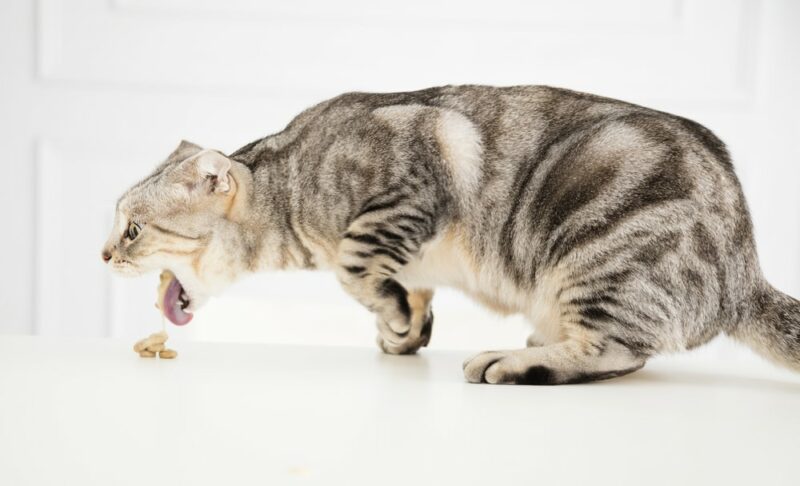
4. Potential to Interact and Inhibit Other Pet Meds
CBD substance is an inhibitor of enzymes that metabolize drugs in the liver. The interaction has the potential effect of affecting the metabolism of any drug that your pet might be using. For this reason, cat owners need to check with their vets for recommendations and advice on which drugs to use and the ones to stop when initiating CBD oils.
5. Lowering of Blood Pressure
You can expose your kitty to a drop in blood pressure if you administer the CBD oils in high doses. Your cat may start experiencing a brief feeling of light-headedness, and they may feel sluggish and sleepy.
It would be best to check with your vet immediately and mention that you were treating them using CBD oil.
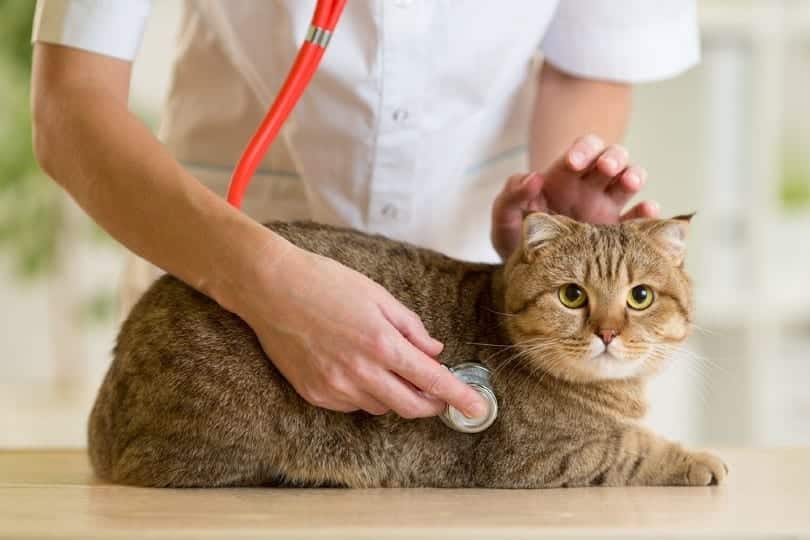
6. Dry Mouth
Saliva in a cat’s mouth signals good health. It helps maintain a feline’s dental hygiene. However, according to scientific research, CBD oils can decrease saliva production in cats, causing their mouths to dry.
Mouth dryness can affect a kitty’s teeth and gums and cause bad breath and difficulty in swallowing. For this reason, your kitty gets thirsty faster and drinks more water than usual to make up for the lack of fluids in the mouth.
If you notice this effect in your pet, it would be best to reduce the CBD dose and seek help from a veterinarian if it does not get better.
Final Thoughts
Cat parents share an incredible bond with their pets and will always find ways to ensure their cats’ health and well-being. While the efficacy of this holistic treatment is still inconclusive, there’s no doubt that this versatile oil might be beneficial to your feline’s well-being and happiness.
Although it may be tempting to share a dog’s or human’s CBD oil with your cat, only give your cat something tailor-made for them. The reason is that ingredients that may benefit humans may be harmful to your feline friend.
As always, cat owners should check with their vets first before introducing these supplements to their pets.
See also:
Featured Image Credit: Lightcube, Shutterstock

